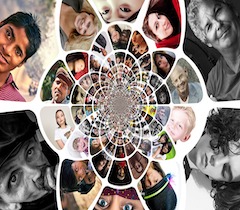The right to science and culture is expressed in Article 27 of the Universal Declaration of Human Rights:
(1) Everyone has the right freely to participate in the cultural life of the community, to enjoy the arts and to share in scientific advancement and its benefits.
(2) Everyone has the right to the protection of the moral and material interests resulting from any scientific, literary or artistic production of which he is the author.
The right to science and culture also appears in Article 15 of the International Covenant on Economic, Social and Cultural Rights:
(1) The States Parties to the present Covenant recognize the right of everyone:
a) To take part in cultural life;
b) To enjoy the benefits of scientific progress and its applications;
c) To benefit from the protection of the moral and material interests resulting from any scientific, literary or artistic production of which he is the author.
(2) The steps to be taken by the States Parties to the present Covenant to achieve the full realization of this right shall include those necessary for the conservation, the development and the diffusion of science and culture.
(3) The States Parties to the present Covenant undertake to respect the freedom indispensable for scientific research and creative activity.
(4) The States Parties to the present Covenant recognize the benefits to be derived from the encouragement and development of international contacts and co-operation in the scientific and cultural fields.
The International Covenant on Economic, Social and Cultural Rights (1966), together with the Universal Declaration of Human Rights (1948) and the International Covenant on Civil and Political Rights (1966), constitute the International Bill of Human Rights. According to the Universal Declaration of Human Rights, the Covenants recognize that “…the ideal of the free human person enjoying civil and political liberty and freedom from fear and want can be realized only if conditions are created whereby everyone can enjoy his economic, social and cultural rights as well as his civil and political rights.”
The Covenant entered into force in 1976 and as of May 2012, 160 countries have ratified it.
Article 1
All peoples have the right to self-determination, including the right to freely determine their political status and freely pursue their economic, social and cultural development.
Article 2
Each country Party to the present Covenant undertakes to take steps to the maximum of its available resources to achieve progressively the full realization of the rights recognized in the present Covenant. The rights set forth in the present Covenant shall be exercised without discrimination of any kind.
Article 3
The States Parties to the present Covenant undertake to ensure to men and women the equal right to the enjoyment of all the rights set forth in the present Covenant.
Article 4
No restrictions may be placed on these rights except insofar as they are compatible with the nature of the rights and solely for the purpose of promoting the general welfare in a democratic society.
Article 5
No person, group or State shall have the right to destroy any of the rights set forth in the present Covenant.
Article 6
Everyone has the right to work, including the right to earn his living by work he freely chooses or accepts.
Article 7
Everyone has the right to just conditions of work; to just wages sufficient to provide an adequate livelihood for himself and his family; to equal remuneration for work of equal value; to working conditions meeting safety and health requirements; to equal opportunity for advancement in work; and to rest and leisure.
Article 8
Everyone shall have the right to form and join trade unions and the right to strike.
Article 9
Everyone has the right to social security, including social insurance.
Article 10
The family shall be provided with protection and assistance. Marriage shall be concluded by the free consent of the parties. Special protection shall be accorded to mothers. Special measures shall be taken with regard to children, without discrimination. Children and adolescents should be protected from economic exploitation. The use of their labor in industries that are harmful or life-threatening should be prohibited. In addition, States shall establish age limits below which child labor shall be prohibited.
Article 11
Everyone has the right to an adequate standard of living for himself and his family, including adequate food, clothing and housing. Everyone has the right to freedom from hunger.
Article 12
Everyone has the right to the enjoyment of the highest attainable standard of physical and mental health.
Article 13
Everyone has the right to education. Primary education shall be compulsory and free of charge for all.
Article 14
Those countries which do not make education compulsory and free of charge for all undertake to formulate a plan of action to ensure such education.
Article 15
Everyone has the right to take part in cultural life and to enjoy the benefits of scientific advancement.




